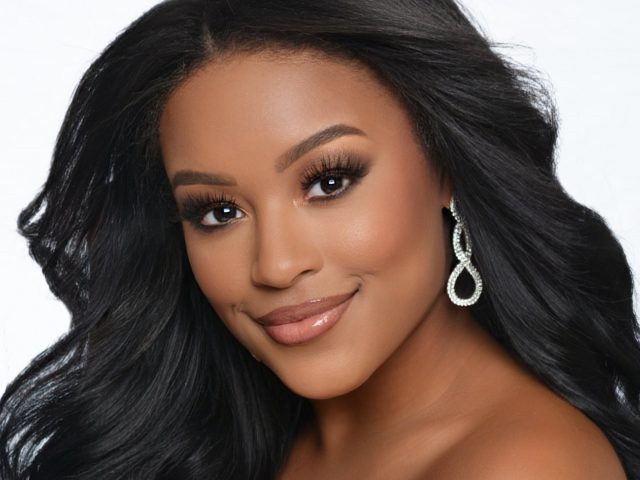![]() Written by One Love Writers Corp member, Rachel Quattrocchi
Written by One Love Writers Corp member, Rachel Quattrocchi
Big Little Lies was a hit series on HBO this year, landing a total of 16 Emmy nominations and winning eight of them. Rumors say that HBO is eyeing Season 2 of Big Little Lies, but whether they move forward or not, there’s definitely lots to learn from Season 1.
The show follows five different families whose stories are all interconnected. One of the main characters on the show is Celeste Wright, played by Nicole Kidman. Celeste is a housewife who is in an emotionally, physically, and sexually abusive relationship.
Celeste and her husband, Perry, have a sex life that seems to be the talk of their cliquey, California town. What outsiders don’t know, however, is the dark truth behind their seemingly passionate and idealistic relationship. Celeste and Perry’s marriage is actually incredibly abusive, ridden with physical altercations and sexual interactions that are almost always non-consensual. Their relationship follows a toxic pattern: Perry will say a manipulative or controlling statement to Celeste, they will get into an argument, and then Perry will physically assault her.
In fact, their relationship is so toxic that it’s hard for us as viewers to understand why Celeste–who is such a strong, brilliant character–stays with Perry, especially when she is aware of his abuse. The former lawyer turned housewife challenges the typical narrative of who we expect to be in abusive relationships, and more importantly, why they stay.
1. LOVE
There are many reasons why people have trouble leaving an abusive relationship and in Celeste’s case, this was no different. She reveals most of these reasons in Episode 5, when she goes to her first counseling session without Perry. The therapist wastes no time before questioning Celeste’s reasoning for staying with Perry. Celeste, flustered by the question, exclaims, “I’m madly in love with him! He adores me, he treats me like a goddess…he’s a great father, we have great sex, we make each other laugh.” As hard as it may be for viewers to believe, Celeste is in love with Perry. The truth is that abusive relationships have their happy times as well, which makes it even more difficult to see an abusive partner in a bad light.
One of the most pivotal things I have ever heard was when a counselor said to someone in an abusive relationship,
“Even though your partner was not who he claimed to be, you were. And this relationship was real to you.”
While the relationship is twisted and toxic, there is a realness to the love that Celeste has for Perry. When love and abuse are intertwined, it gets hard to decipher which is which, making it even harder to leave. Many people in abusive relationships will feel things like, “I can’t give up on them. I understand why they act in an unhealthy way, and they need me. I’m the only one who can truly help them.” But remember, you should never stay in a relationship in which you count on someone to change. It is not the responsibility of a significant other to fix their partner’s problems; this is a job for a trained counselor. Also, you’re not a bad person if you walk away or abandon an unhealthy or abusive situation.
2. CHILDREN
When kids are involved, leaving an abusive relationship can feel harder. In Celeste’s case, Perry is actually a very involved and seemingly loving father. So why would Celeste disrupt her children’s lives because of something that doesn’t seem to affect them? Plus, Celeste and Perry went through four miscarriages before they were able to get pregnant. She can’t imagine going through all of that with Perry just to end up leaving him. Therefore, like many people married to an abusive partner, Celeste bears the brunt of all the abuse for the sake of her family’s happiness and stability.
But, as we later find out, Celeste and Perry’s kids are actually affected by the abuse. They see the violence, normalize it, and then act in an abusive way towards their friends at school. Realizing this seems to be the true pivotal moment for Celeste, as the last thing she wants is to have her children be affected by Perry’s unhealthy behaviors.
3. HISTORY
During the counseling session, Celeste issues a profound reason for why she hasn’t left Perry yet. With tears in her eyes, she says: “We are bound by everything we’ve been through and breaking away from him is like tearing flesh.” One of the definitions for the word bound is, “obliged by law, circumstances, or duty to something.” People usually use the word “bound” as it pertains to tying something up with rope. So, picture Celeste bound tightly to Perry by a rope. With that image in mind, you can begin to see where it might be difficult for Celeste to break away.
This sense of shared history is not an uncommon feeling for people in unhealthy and abusive relationships. First dates, family gatherings, romantic trips, moving in together–all of these big life events and moments weigh heavily on the shoulders of someone who is considering leaving their partner.
As author of Big Little Lies Liane Moriarty revealed at the Emmy’s, Celeste and Perry’s relationship was inspired by a past personal experience. Moriarty has used her voice and personal experience to shed a light on an issue that impacts 1 in 3 women and 1 in 4 men. As a result, she has started a conversation about unhealthy and emotionally abusive relationship behaviors; a conversation that One Love weighed in on earlier this year in Teen Vogue.
An important takeaway from both the Big Little Lies series is that abuse is never ever deserved; whether you self-identify as “strong”–like Celeste’s character–or not. Here’s hoping HBO continues the series for another season as a way to continue bringing awareness to this important issue.
If you or someone you know is experiencing an unhealthy or abusive relationship, check out our real time resources, or call the National Domestic Violence Hotline at 1-800-799-7233. If you’re in imminent danger, please call 911.
Browse by Category

Finding Strength in Our Stories: Domestic Violence Awareness Month
⚠️ Trigger Warning: This blog includes content and language related to relationship abuse. Please read with care. 💙 October is…
Understanding Domestic Violence Awareness Month (DVAM)
October is almost here, and that means it’s time to…
4 Students Share How They Helped a Friend in an Unhealthy Relationship
Watching a friend struggle in an unhealthy or abusive relationship…
Courageous Boundaries: Managing Life with Your Ex Partner by One Love Foundation and Miss Kansas, Alexis Smith
Co-authored by One Love Foundation and Miss Kansas, Alexis Smith …
How to End a Summer Romance or Friendship
Summer flings and friendships can feel fleeting. So why is…














